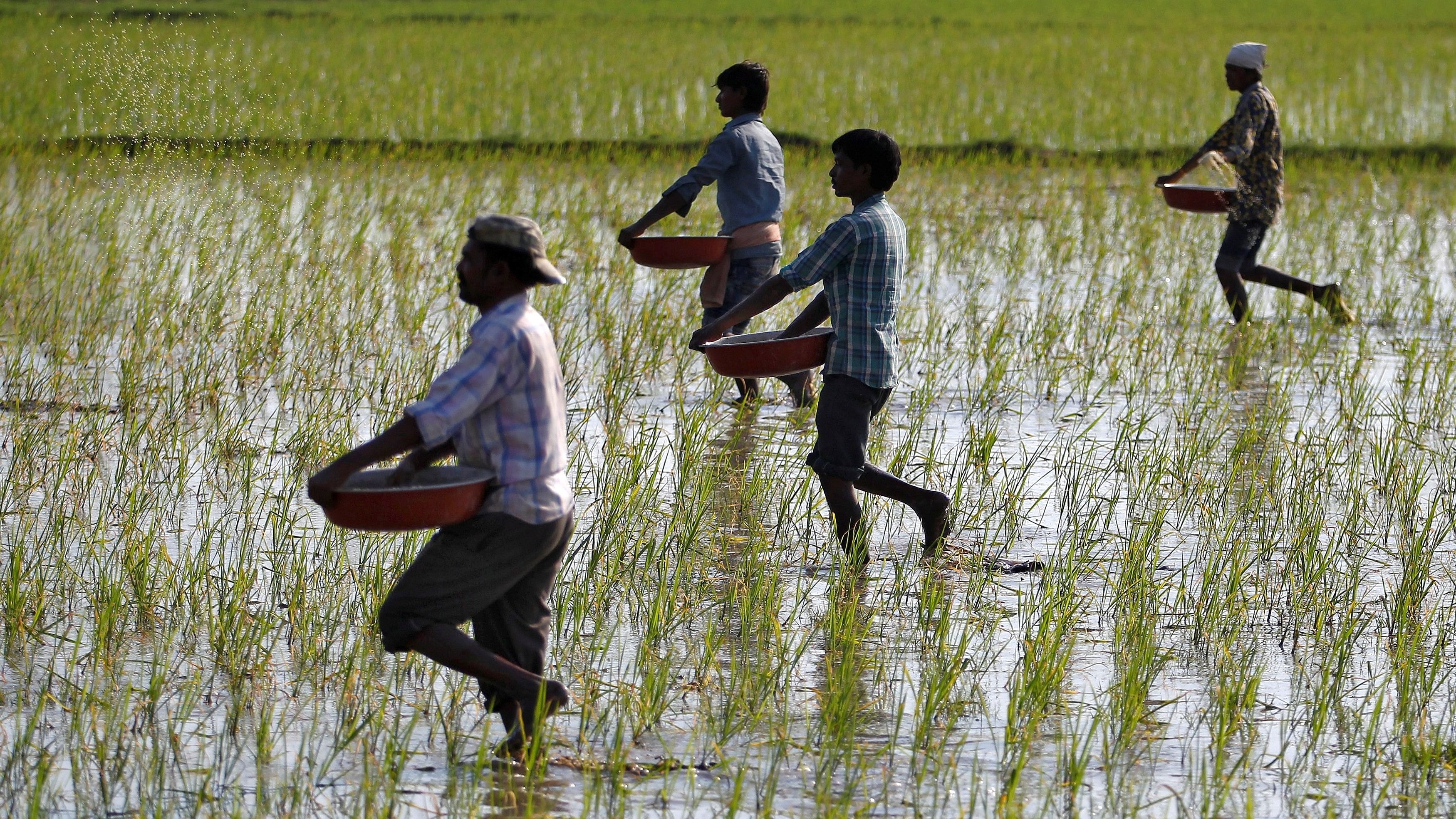
FILE PHOTO:Farmers sprinkle fertilisers on a paddy field on the outskirts of Ahmedabad.
Credit: Reuters Photo
New Delhi: The Union Cabinet on Wednesday approved Rs 22,303 crore in nutrient-based fertiliser subsidy for the 2023-24 Rabi season, lower than last year.
The government will provide subsidies at a rate of Rs 47.02 per kg for nitrogen, Rs 20.82 per kg for phosphorus, Rs 2.38 per kg for potash and Rs 1.89 per kg for sulphur-based fertilizers. This subsidy is for Rabi season 2023-24 that runs from October 1, 2023 to March 31, 2024.
The approved subsidy for the current Rabi season is sharply lower than the Kharif season and also last year’s Rabi season. For the Kharif season that ended on September 30, nitrogen subsidy stood at Rs 76 per kg, while for phosphorus it was Rs 41 per kg. The amount of subsidy approved by the union cabinet on May 17 for the Kharif season stood at Rs 38,000 crore.
Addressing a media briefing, Union Minister Anurag Thakur said the lower subsidy rate for the Rabi season is because of the decline in the prices of fertilisers in the international markets.
“The subsidy will be provided to the fertiliser companies as per approved and notified rates so that fertilizers are made available to farmers at affordable prices,” Thakur said.
In the previous Rabi season, the amount approved for the Nutrient Based Subsidy (NBS) stood at Rs 51,875 crore. It also included support for indigenous fertiliser through a freight subsidy.
Despite a sharp cut in subsidy rates on key nutrient-based fertilisers, the overall subsidy burden to the exchequer is likely to be sharply higher than the budgeted amount. For the current financial year, the central government has earmarked Rs 44,000 crore for nutrient-based subsidy. As per the latest available data, Rs 34,111 crore was spent on nutrient-based subsidy April-August period, which is 78% of the full year budget estimate.
In the last financial year (FY23) the centre ended up spending Rs 2.25 lakh crore in fertilizer subsidies, as against budget estimates of Rs 1.05 lakh crore. The total budgeted fertilizer subsidy outlay for the current fiscal year stands at Rs 1.75 lakh crore.
Thakur said the decision on subsidy rates were taken based on the recent trends in the international prices of fertilisers & inputs i.e. urea, DAP, MOP and sulphur.
He said subsidy on Di-ammonium Phosphate (DAP) will continue at Rs 4500 per tonne. DAP will be made available to farmers at a rate of Rs 1,350 per bag as per the old rate.